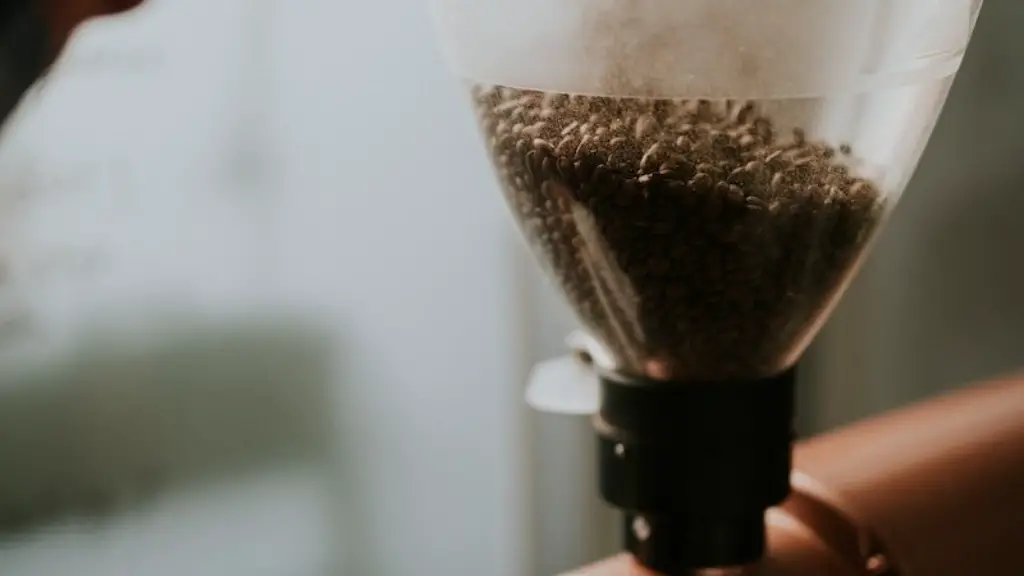Most of us rely on drinking coffee as a pick-me-up, a way to get through the day, or simply an enjoyable morning ritual. Unfortunately, drinking coffee can bring side-effects, one of which is bloating. Bloating is the feeling of being full and having an uncomfortable sensation in your abdomen. It can be embarrassing and make you feel uncomfortable in social situations. Let’s explore if drinking coffee can actually make you bloated and what you can do to avoid or reduce it.
Drinking coffee can cause bloating due to two main reasons. First, caffeine is a diuretic, meaning it increases urination. This can lead to dehydration and subsequent water retention, which can cause bloating. Second, when a person drinks coffee, the acidity can cause the stomach to produce more gas. This gas is released and can cause the stomach to puff up.
If you experience bloating after drinking coffee, there are some lifestyle changes you can make to reduce it. First, increase your water intake. Replacing caffeinated beverages with water will help you stay hydrated and reduce water retention. Also, consider switching to decaffeinated coffee. Decaf coffee has lower levels of caffeine, so the diuretic effect on your body is lessened.
In addition to lifestyle changes, there are some herbal remedies and supplements you can take to reduce bloating. Water-soluble fiber supplements can help absorb excess water in the intestines. Probiotic supplements can help promote good digestive health and reduce bloating by increasing the bacteria in your gut. Lastly, ginger and peppermint are known to fight bloating.
There is other evidence that points towards coffee consumption often being linked to bloating. A 2019 study by the University of Granada which examined over 600 people found that those who drank the most coffee were more likely to experience abdominal bloating.
In general, there are many potential causes of bloating, such as diet and lifestyle habits. While drinking coffee may be a contributing factor, it is important to note that it is not an isolated cause. Eating foods that are high in fiber and avoiding sugary drinks, processed foods, and artificial sweeteners can all help reduce bloating.
It is clear that drinking coffee can be a contributing factor to abdominal bloating. However, it is important to listen to your body and make changes to your diet and lifestyle to reduce the bloating you experience. By making small adjustments, such as increasing water intake and switching to decaf coffee when available, you can reduce the likelihood of experiencing uncomfortable bloating.
Individual reactions to caffeine
When it comes to understanding why coffee can cause bloating, it is important to take individual reactions to caffeine into account. Research suggests that the way people respond to caffeine varies, depending on their genetics. Some people have a more heightened reaction to caffeine’s stimulative effects, meaning they may be more likely to experience bloating after drinking coffee.
In order to avoid coffee related bloating, it is helpful to understand how your body reacts to coffee. Caffeine affects everyone differently, so tracking how you feel after drinking coffee can help you determine if it is a potential factor in your bloating. If you experience bloating after drinking coffee, it may be best to limit your consumption of it over time.
Alternative drinks
If you are looking for alternative pick-me-ups, there are many other drinks out there that may help. Teas such as ginger and chamomile have anti-inflammatory properties and may help reduce bloating. Alternatively, you could opt for healthy smoothies or juices to add extra nutrients to your diet and help reduce bloating.
If coffee is your only choice, there are a few ways you can reduce coffee-related bloating. Adding some alternative dairy or plant-based milk to your coffee can lessen the effect of the acidity, while also reducing inflammation. Additionally, adding natural sweeteners such as honey or stevia can help prevent fat accumulation in the intestines and reduce bloating.
There are many methods of avoiding coffee-related bloating, such as replacing it with other drinks and adding in healthy ingredients. Experimenting with different strategies and understanding the way your body reacts to coffee will help you reduce and manage bloating.
Unsweetened coffee
Drinking unsweetened coffee can help to reduce bloating. Because unsweetened coffee does not contain any added sugars, it does not cause a spike in your blood sugar level. Therefore, your body does not experience an insulin surge as it would with added sugars and can help to avoid causing bloating.
Additionally, unsweetened coffee can help prevent fat accumulation in your intestines. When you consume sugars and sweeteners, they can be stored as excess fat in your intestines, leading to bloating. Therefore, avoiding adding sugars to your coffee will help you reduce bloating.
By understanding how caffeine affects your body and how bloating is caused, you can make better decisions about your coffee consumption. Unsweetened coffee is a better choice as it can help to reduce bloating and other digestive issues associated with added sugars and sweeteners.
If you still want to enjoy regular coffee, there are some simple tips you can use to reduce bloating. First, try opting for low-acid coffees. Specialty coffees that come from Southeast Asia, Latin America, and Middle Eastern countries tend to have lower acidity levels and can decrease your potential for bloating.
In addition to opting for low-acid coffees, try adding ingredients that help reduce bloating. Adding grass-fed butter, full-fat coconut milk, or cinnamon can all help reduce the acidity in your coffee and reduce bloating. Additionally, adding a pinch of baking soda can help neutralize acidity in your coffee.
Finally, try avoid drinking large amounts of coffee at once. If a large mug of coffee is your norm, try to switch to smaller cups to reduce the amount of coffee you are consuming at once. If you normally have a cup of coffee in the morning, try avoiding it in the afternoon and evenings. Reducing your consumption of coffee will reduce the potential for bloating.
Foods that reduce bloating
When it comes to reducing bloating, it is essential to consider the diet you are consuming. This includes understanding which food groups can help reduce bloating, as well as which ones can cause it. Eating foods rich in fiber, such as fruits, vegetables, and whole grains, can help reduce bloating.
Additionally, adding fermented foods to your diet may also help reduce bloating. Fermented foods contain probiotics which can increase the number of beneficial bacteria in your gut and help reduce bloating. Popular fermented foods include yogurt, sauerkraut, miso, and kimchi.
In addition to adding fiber and probiotics to your diet, avoiding certain foods can also help reduce bloating. Sugar alcohols, such as sorbitol, mannitol, and xylitol, are known to cause bloating and should be avoided. Additionally, processed and deep-fried foods can also contribute to excess bloating.
There are many foods out there that can help you reduce bloating. By replacing processed foods and sugar-based snacks with fiber-rich, fermented, and natural alternatives, you can help reduce the bloating you experience.
Medical advice
Although drinking coffee may cause bloating, some people may suffer from chronic bloating that exceeds the normal experience. If you are experiencing chronic bloating, it may be worth considering seeking medical advice. Your doctor may be able to recommend treatments such as medications, dietary changes, or cognitive-behavioral therapy.
In addition to seeking medical advice, it is important to take note of potential warning signs. These can include abdominal pain, excess gas, changes in bowel habits, weight gain, nausea, and loss of appetite. If you experience any of these symptoms in addition to persistent bloating, it is best to seek medical advice.
In conclusion, understanding the potential causes and effects of bloating can help you make changes to your lifestyle and diet. Additionally, if you experience chronic bloating, it is important to seek medical advice. By following the advice outlined above and making changes to your diet and lifestyle, you can reduce bloating related to coffee consumption.





